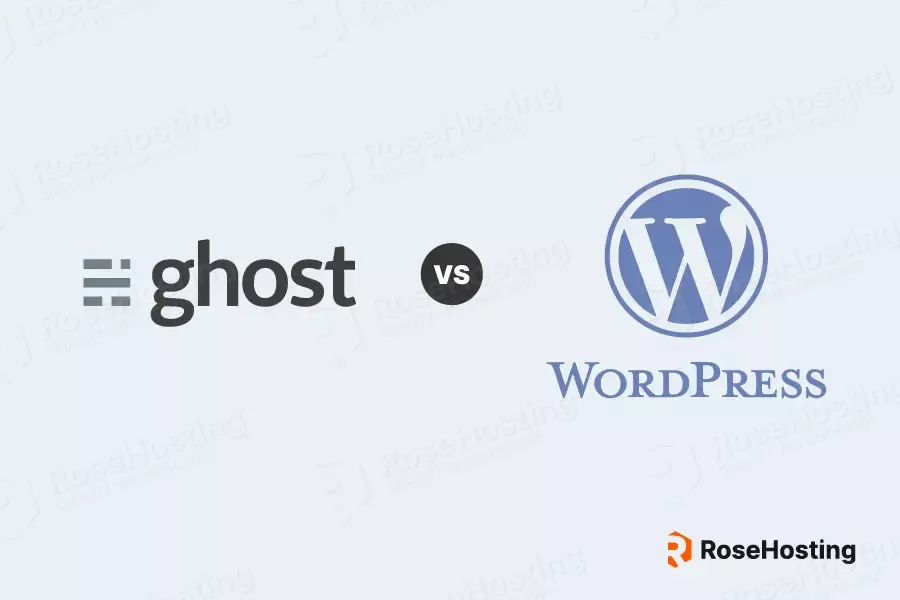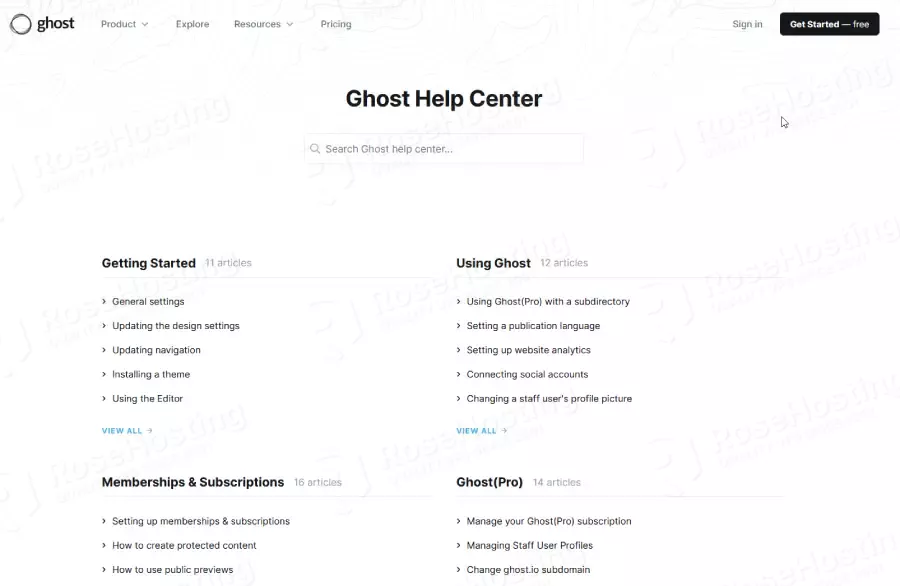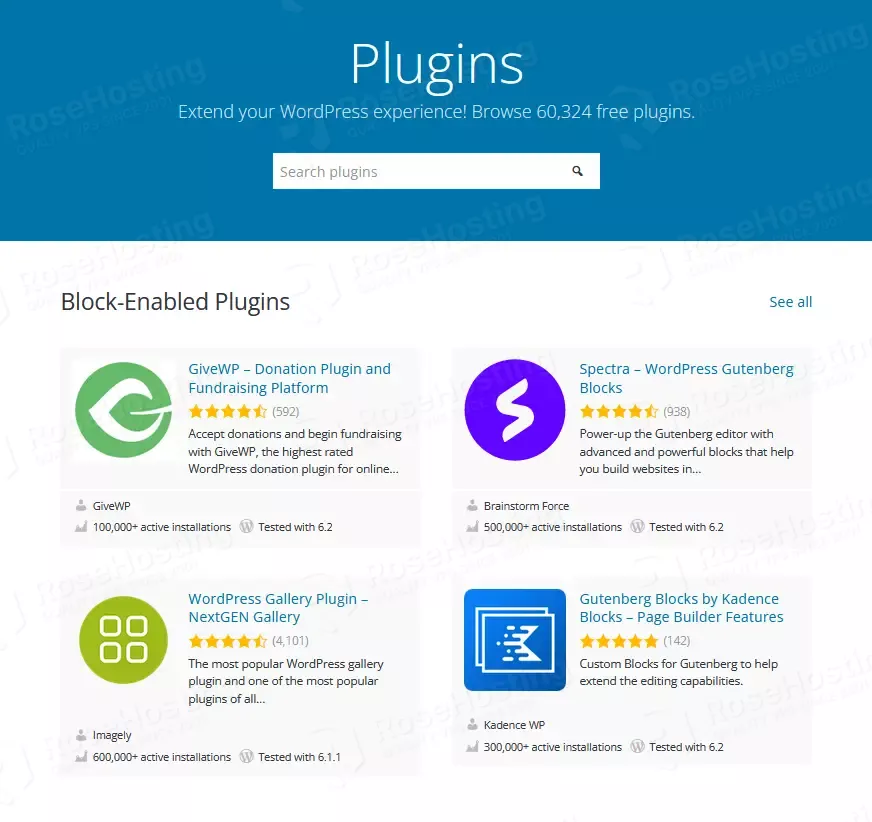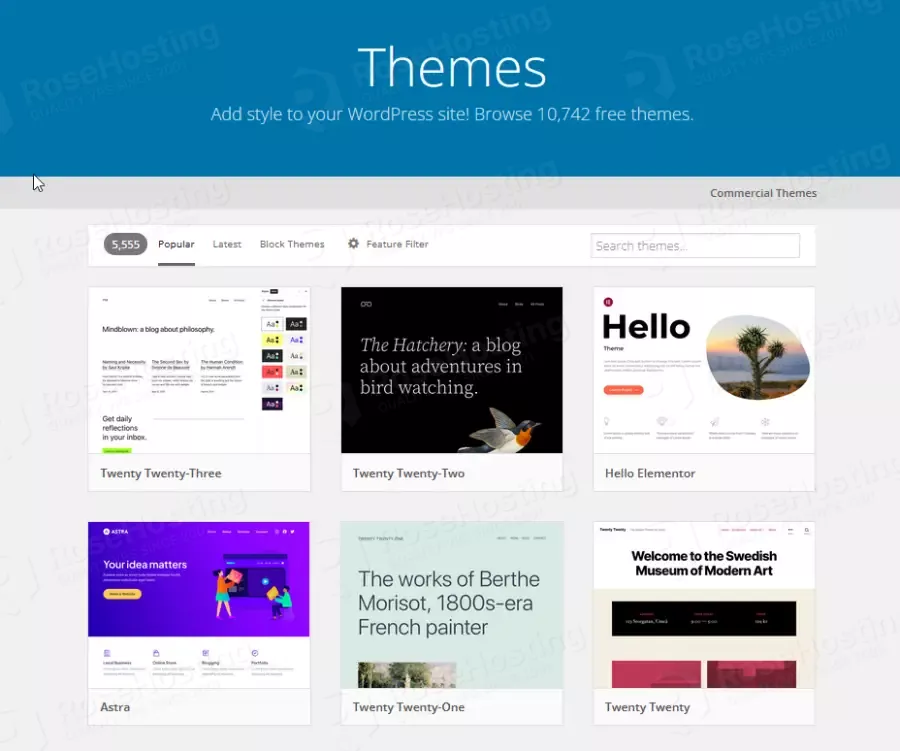
In the blogging and content creation world, two major players stand out from the crowd: Ghost and WordPress. These platforms have grown in popularity due to their powerful features, ease of use, and ability to create stunning and fast websites with minimal effort.
However, as more and more people turn to these platforms for their content creation needs, there is an ongoing debate about which one is the best.
Throughout this piece, we will delve into a thorough comparison between Ghost and WordPress, examining aspects such as features, user experience, customization options, performance, security, and pricing. By the end, you’ll clearly understand which platform is the best fit for your content creation and blogging needs.
Table of Contents
Introduction to Ghost and WordPress
Ghost and WordPress are two prominent content management systems that have played a significant role in shaping the landscape of online publishing. While they have distinct characteristics and cater to different user needs, they share similarities and have contributed to the evolution of website creation and management.
Ghost CMS, founded in 2013, was specifically designed to focus on the needs of content creators. Its simplicity and minimalistic approach resonate with writers, bloggers, and journalists who prioritize an intuitive writing and editing experience.

Ghost CMS emphasizes speed, performance, and a distraction-free interface, providing a seamless platform for content creation. It utilizes modern web technologies, such as Node.js, which enables efficient handling of real-time content updates.
Ghost is known for its ease of use and its focus on the content rather than on the bells and whistles of other platforms. It is an open-source platform, meaning that it is constantly being improved by a community of developers who are passionate about making it better.
It also has an active user base that can help answer any questions you may have about using the platform.

WordPress, on the other hand, is the undisputed king of content management systems (CMS), powering a staggering 40% of all websites on the internet.
Founded by Matt Mullenweg and Mike Little in 2003, it has emerged as the most popular and widely used CMS.
Initially, it began as a blogging platform but evolved into a full-fledged CMS that powers millions of websites worldwide. Its open-source nature, extensive plugin ecosystem, and user-friendly interface have made it accessible to users of varying technical expertise.
WordPress offers a vast range of themes, templates, and plugins, enabling users to create diverse and feature-rich websites, from personal blogs to e-commerce stores.
Its intuitive interface and drag-and-drop page builders make it simple to create beautiful, functional websites with minimal technical knowledge or coding experience. With a few clicks of the mouse, you can quickly set up a site with a professional design and all the features you need.
And if you ever get stuck, there are plenty of online resources to help you out. Plus, WordPress is free and open source, so anyone can use it without breaking the bank.
Ghost vs. WordPress: Features Comparison
When comparing Ghost and WordPress, it’s essential to consider the features that each platform offers. While both platforms can be used to create beautiful, functional websites, there are some significant differences in the features they provide.
For instance, Ghost is a more lightweight platform with built-in features such as an editor and a content API. The content API allows developers to easily access and display content from the Ghost platform on other websites.
WordPress, on the other hand, has an extensive library of plugins that can be used to extend its functionality. This includes everything from contact forms to e-commerce solutions.

Additionally, WordPress offers a wide range of themes and templates to choose from so users can customize their websites in any way they want. It also has powerful media management tools allowing users to easily upload and manage videos, images, and audio files.
Overall, both Ghost and WordPress offer different features that are essential for creating a successful website. However, it’s important to consider which features are most important for your project before making a decision about which platform is best for you. By doing this, you can ensure that your website will be successful in meeting your objectives.
User Interface and Ease of Use
One of the most significant differences between Ghost and WordPress is the user interface and overall ease of use.
Ghost was designed with simplicity in mind, offering a clean, intuitive interface that allows users to focus solely on their content. The platform offers a live preview of your content as you write, making it easy to see how your post will look once published.
Additionally, Ghost uses a simple, markdown-based editor, which eliminates the need for complex formatting tools and settings.
The learning curve for WordPress can be steep, which can feel overwhelming for new users. It offers a more extensive range of settings and customization options, which can make it challenging to navigate for those unfamiliar with the platform.
However, the platform itself is extremely flexible and can be used to create almost anything you can imagine. With its vast selection of themes and plugins, you can easily customize your site to meet your exact needs. Plus, with its open-source nature, developers are constantly improving the platform with new features and updates.
All in all, WordPress is an incredibly powerful tool that’s perfect for both beginners and experienced users alike.
Winner: Tie
Both Ghost and WordPress offer unique features and functionalities that make them popular among content creators. Ghost has a modern and minimalist user interface that is easy to use, making it an excellent choice for those who want to focus on content creation.
WordPress offers a more traditional interface that can be customized to suit your preferences, making it an excellent choice for those who want more control over their website’s design.
Ultimately, the choice between Ghost and WordPress will depend on your specific needs and preferences. If you’re looking for a simple, easy-to-use platform that focuses on content creation, Ghost may be the right choice for you.
On the other hand, if you want a more customizable platform that offers a range of features and plugins, WordPress may be the better option.
Customization and Themes
Another key difference between Ghost and WordPress is the level of customization and the availability of themes.
Ghost offers a limited number of themes compared to WordPress, but they are designed with a focus on simplicity and elegance. The themes available for Ghost are carefully crafted and often have a modern and minimalistic aesthetic.

Ghost’s themes emphasize content readability and user experience, making them ideal for bloggers and writers who want to showcase their written work. While the selection of themes is smaller compared to WordPress, they are typically of high quality. Ghost also allows for easy customization through its built-in Handlebars theme templating engine.
This provides flexibility to developers and advanced users who want to create their own custom themes or modify existing ones. However, customization options for non-technical users may be limited compared to WordPress.
WordPress is known for its vast library of themes and templates. It offers thousands of free and premium themes, covering a wide range of styles and industries. Whether you’re running a blog, e-commerce site, portfolio or business website, WordPress has a theme to suit your needs. The availability of themes in WordPress is unparalleled, allowing users to find a design that matches their vision.
WordPress also provides a robust theme customization system through its built-in customizer. This user-friendly interface enables users to modify various aspects of their website’s appearance, including colors, typography, layout, and more.
Additionally, WordPress supports child themes, which allows for even deeper customization without affecting the parent theme’s core files.
Winner: WordPress

In terms of customization and themes, WordPress emerges as the winner due to its extensive library of themes and flexibility in customization.
The vast selection of themes caters to a broad range of industries and design preferences. WordPress also offers a user-friendly customization system that allows both beginners and advanced users to personalize their websites easily.
Performance and Speed
Ghost is known for its excellent performance and speed. It is built using modern web technologies and is optimized for speed and efficiency. Ghost’s lightweight codebase and streamlined architecture contribute to faster page load times and a smooth user experience.
Ghost’s focus on simplicity and minimalism also helps improve performance. By avoiding unnecessary features and functionalities, Ghost reduces the amount of code that needs to be loaded, resulting in faster loading times. Additionally, Ghost’s built-in caching system and CDN support further enhance its performance.
On the other hand, WordPress has come a long way in improving its performance, but it can be more resource-intensive compared to Ghost, especially when running numerous plugins and complex themes. The performance of a WordPress site depends heavily on the specific plugins, themes and hosting environment used.
While WordPress itself is not inherently slow, the extensive customizability and plugin ecosystem can lead to potential performance bottlenecks if not managed carefully. Users need to choose optimized themes, efficient plugins, and quality hosting providers to ensure optimal performance.
However, with proper optimization techniques, such as caching plugins, image optimization, and content delivery networks, WordPress websites can still achieve excellent performance.
Winner: Ghost
When it comes to performance and speed, Ghost has the advantage. Its streamlined architecture, lightweight codebase, and focus on simplicity contribute to faster page load times and smoother user experience. Ghost’s performance optimizations, such as caching and CDN support, further enhance its speed.
Security and Updates
Ghost strongly focuses on security and takes several measures to protect websites and user data. It follows security best practices and regularly releases updates to address vulnerabilities and improve overall security. Ghost’s core team actively monitors security threats and promptly addresses any reported issues.
One of Ghost’s security strengths lies in its simplified architecture. Potential attacks are reduced by keeping the platform lightweight and avoiding unnecessary complexities. Ghost’s focus on minimalism also means fewer plugins and themes, minimizing the risk of vulnerabilities associated with third-party integrations.
Ghost provides automatic updates for its core system, ensuring that users have the latest security patches and enhancements without manual intervention. However, it’s worth noting that Ghost’s plugin ecosystem is not extensive as WordPress’, which may limit some customization options but can also reduce the potential attack surface.
WordPress has a large user base and an extensive plugin and theme ecosystem, which can make it an attractive target for hackers. However, the WordPress community takes security seriously and actively works to address vulnerabilities.
WordPress regularly releases security updates and bug fixes to address known issues promptly. Users are encouraged to keep their installations up to date to benefit from the latest security enhancements.
Additionally, WordPress supports automatic updates for minor releases by default, ensuring users have the latest security patches without manual intervention.
WordPress also benefits from a wide range of security plugins and tools that can further enhance website security. Users can implement measures such as firewall protection, malware scanning, and user authentication to bolster their site’s security.
Winner: Tie
Considering the overall security measures and update practices, Ghost edges out slightly in terms of inherent security due to its minimalist approach and automatic updates. However, it’s important to note that both platforms can be secured effectively with proper security measures and responsible management.
Ultimately, the choice between Ghost and WordPress regarding security and updates will depend on your specific requirements and comfort level with managing security measures.
Pricing and Plans
Ghost offers a transparent and straightforward pricing structure. They provide both self-hosted and managed hosting options.
The self-hosted version of Ghost is open-source and free to use. However, you will need to acquire your own Ghost hosting plan, which incurs additional costs. Self-hosting allows you to have complete control over your website and choose a hosting provider that fits your budget and requirements.
Ghost offers officially managed hosting plans called Ghost(Pro). Their plans start at $9 per month for the Basic plan, which includes features like automatic backups, SSL certificate, and worldwide CDN. Higher-tier plans, such as Creator, Team and Business, offer additional features like priority support, more page views, and team collaboration tools.
WordPress is a free and open-source CMS, which means you can download and install it without any initial costs. However, similar to Ghost, you’ll need to consider hosting costs.
With WordPress, you have the freedom to choose a reliable hosting provider and can find a plan that suits your budget. The cost of self-hosting varies depending on the hosting provider, plan features, and the level of resources required for your website.
Winner: WordPress
In terms of pricing and plans, both Ghost and WordPress offer flexible options to suit different budgets and preferences. Ghost’s managed hosting plans provide a seamless experience with a clear pricing structure, ensuring that the platform is taken care of by their team.
WordPress offers the advantage of being free to use, but the cost of hosting depends on your chosen provider and plan. RoseHosting offers managed WordPress hosting plans with comprehensive features and excellent support.
Considering the pricing options, flexibility, and availability of WordPress hosting plans, WordPress takes the win. However, your decision regarding Ghost vs. WordPress pricing and plans will depend on your budget, desired features, and the level of support needed.
Ghost vs. WordPress: Which One is Best for Content Creators and Bloggers?
Ultimately, the decision between Ghost and WordPress will come down to your specific needs and preferences as a content creator or blogger. If you value simplicity, ease of use, and a platform designed specifically for blogging, Ghost may be the ideal choice. Its focus on content and clean user interface makes it an attractive option for writers and publishers who want a distraction-free environment for their work.
However, if you require a more flexible and customizable platform capable of accommodating a wide range of website types and features, WordPress may be the better option. With its vast library of themes, plugins, and customization options, WordPress offers unparalleled flexibility and adaptability, making it an ideal choice for businesses and organizations of all sizes.
Additionally, if you are already familiar with WordPress and have invested time and resources into building your site on the platform, switching to Ghost may not be worth the effort. Conversely, if you are starting a new blog or website and are looking for a fresh start, Ghost may be the perfect platform to get started with.
When it comes to Ghost vs. WordPress, there is no clear winner, as both platforms have their strengths and weaknesses. Ultimately, the decision will come down to your specific needs and preferences as a content creator or blogger.
Regardless of which platform you choose, it’s essential to invest time and effort into creating high-quality, engaging content that resonates with your audience. With the right approach and strategy, you can build a successful blog or website on either platform, attracting a loyal following and achieving your content creation goals.